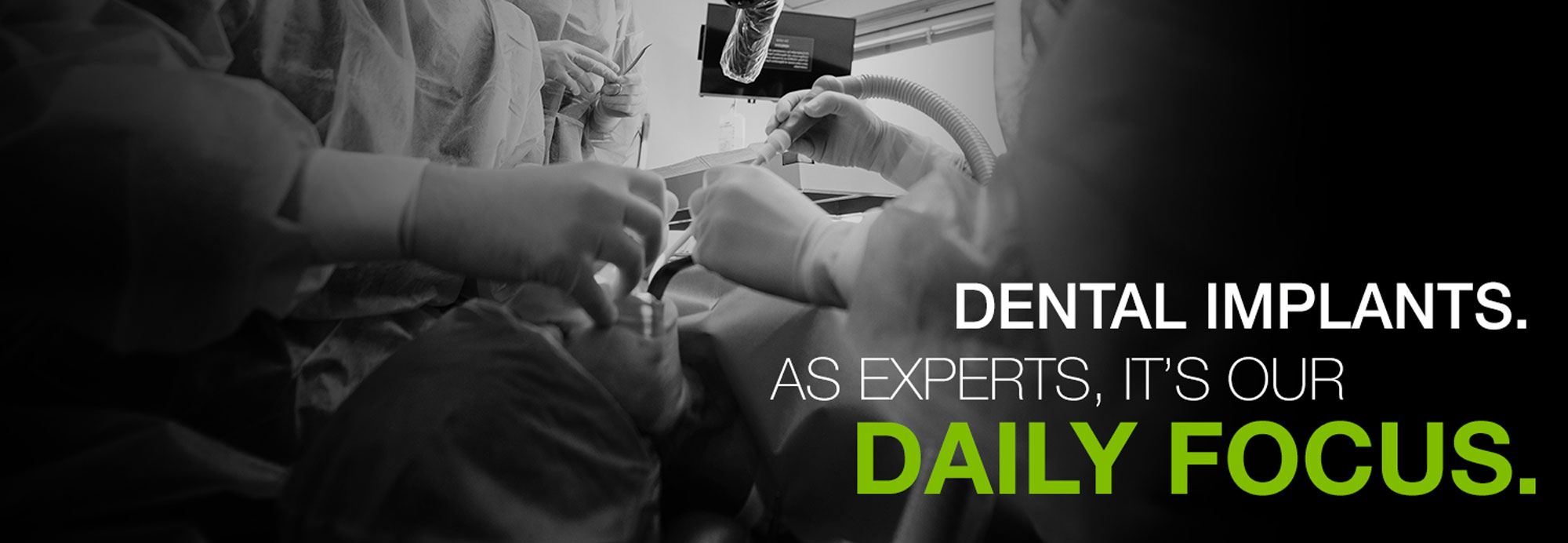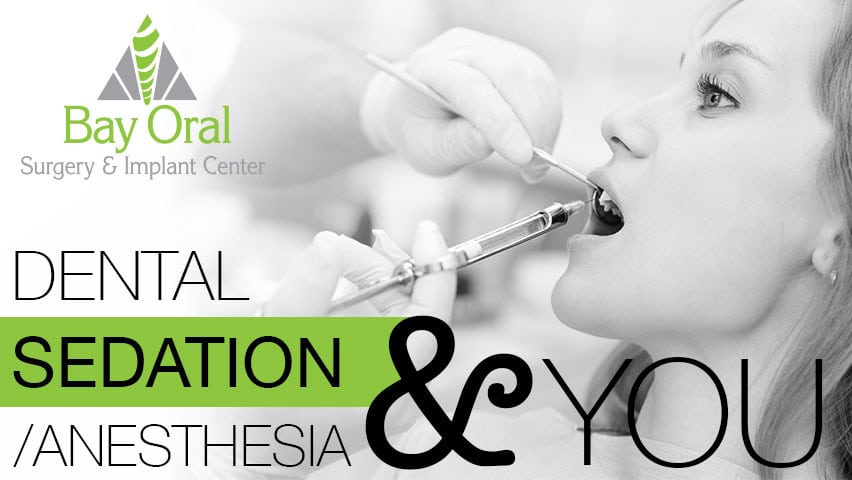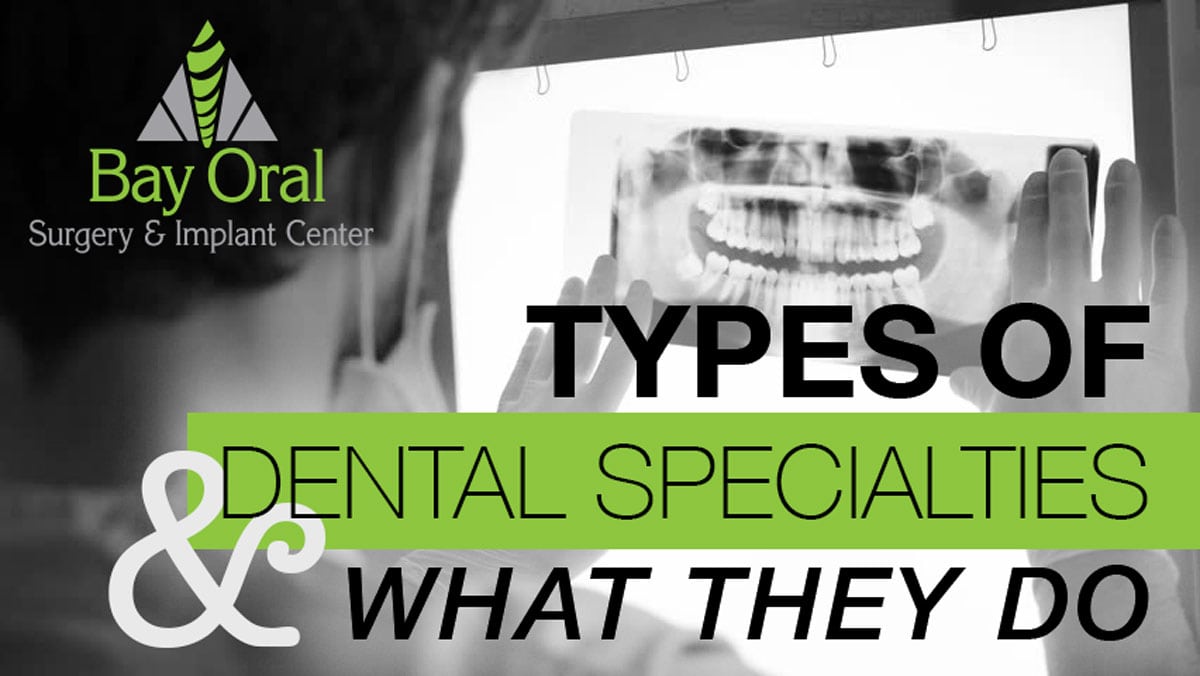
Our team at Bay Oral has years of experience and training in dental implant surgery.
Dental implants are titanium posts surgically placed under the gum tissue and into the jaw bone. The purpose of the implant is to replace the root of a missing tooth. Over a period of several months, the bone bonds to the implant creating a stable foundation for your dentist to then attach the prosthetic tooth (otherwise known as a crown) to. You also may have heard of mini implants. Mini implants can be used as a temporary solution but are not FDA approved as a permanent anchor for crowns and dentures.
When it comes to dental implant surgery, you should consult an Oral Surgeon who performs this procedure on a daily basis.
What are the benefits of dental implants?
Teeth implants help preserve facial structure, preventing bone deterioration that occurs when teeth are missing. They are designed to provide a foundation for replacement teeth that look, feel, and function like natural teeth. When you choose teeth implants, you regain the ability to eat your favorite foods, and smile with confidence knowing that your teeth appear natural and healthy.
I'm missing a tooth. What are my options?
When you are considering your options for replacement teeth, you should consult both your family dentist and the experts at Bay Oral Surgery about the best choice for your situation and health.
- Teeth implants are placed in the patient’s jaw bone and offer maximum stability through a titanium post. They also provide a long-term solution to missing teeth. Implants aid in the replacement of missing teeth without the need to involve other natural teeth.
- A bridge is three or more “teeth” connected together and attached to the natural teeth on either side of the space of the missing tooth. In order to attach the bridge, your dentist will need to grind down the teeth on both sides of the space. The bridge is cemented into place and is not removable.
- A partial is a retainer-type appliance with a “tooth” or “teeth” on it which you can easily take in and out on your own. This can be used to replace one or more missing teeth.
- Do nothing and just leave the space. Over time, this could possibly lead to bone loss in the area of the missing tooth, shifting or drifting of the teeth behind the space, and/or super eruption of the tooth opposite of the missing tooth.
How much do dental implants cost and am I a candidate?
Given that every case is different, we feel the best way to determine if you are a candidate is for us to see you for a consultation. During the consultation, you will meet with one of our oral surgeons who will discuss the implant process and create a treatment plan based on your dentist’s recommendations and specifically for your situation. Many factors can affect each treatment plan and overall dental implants cost. Things such as extractions, bone grafting and sedation may not be needed in every case but can add additional cost to some treatment plans. Please contact our office to schedule a consultation at (920) 499-0471.
What's the procedure and recovery process like?
As with any treatment, recovery can vary from patient to patient but this too would be addressed at the time of the consultation. Much of the recovery depends on the procedure(s) you’ve had done, whether or not you were sedated for the procedure(s), and your overall health. Most people, however, are back to their regular routine within a day or two of having a single implant placed. You may have some dietary restrictions depending on where your implant was placed.
Related Articles
Dental Anesthesia / Sedation and You
There are three main types of sedation used in oral surgery; local anesthetic, IV sedation, and general anesthesia. It’s important to remember, with Bay Oral Surgery & Implant Center - all of our services are surgical in nature and will require some type of...
Types of Dental Specialties & What They Do
Not all dentist's are created equal, but they all have a common goal, helping you have and keep a healthy mouth. Find out the different types of dental specialties and exactly what they do. Pedodontics - Pediatric Dentist While general dentists are allowed to treat...


